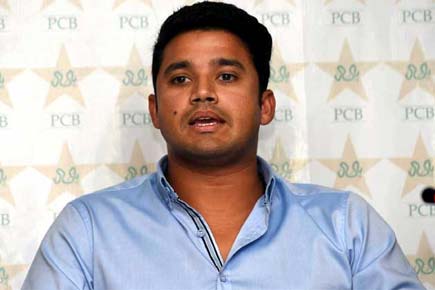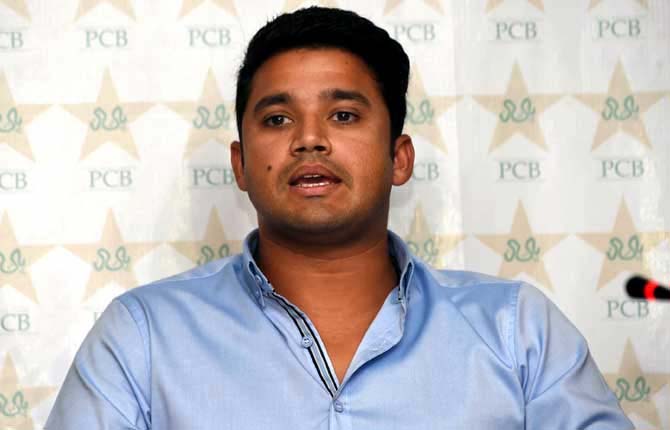After Test captain Misbah-ul-Haq, Pakistan's one-day skipper Azhar Ali is also keen to see a revival of bilateral cricketing ties with India

Azhar Ali
Karachi: After Test captain Misbah-ul-Haq, Pakistan's one-day skipper Azhar Ali is also keen to see a revival of bilateral cricketing ties with India.
Azhar Ali. Pic/AFP
ADVERTISEMENT
Despite the Indian cricket officials ruling out any chances of a bilateral series with Pakistan at the moment after the terrorist attack in Gurdaspur, Azhar said it was every player's dream to play against India. "It would be good for cricket if Pakistan and India play. We want to play because doing well against India is always
special," the 30-year-old said.
But he pointed out that at the end of the day decision on cricket ties between the two countries was not for the players to make. "It is in the hands of the cricket authorities and governments. If we can have a series with India it would be great," Azhar said. Pakistan¿s cricket community has largely spoken in favour of having cricket ties with India despite the tensions at the government level after the Gurdaspur incident.
"It is difficult to say at the moment whether we can have a series against India in December. Everything will now depend on what happens in the next few days after this Gurdaspur incident," the former Chairman of the Pakistan Cricket Board, Najam Sethi, said. "We have to wait and see whether sections of the Indian
media or government start blaming Pakistan for this incident.
But as far as cricket ties are concerned, decisions are made at last moment," he added. Another former PCB Chairman Khalid Mehmood said it was unfortunate that cricket ties between Pakistan and India had always been affected by politics. "What is noteworthy is that whenever India has to host us they manage to do it regardless of the situation between the two countries.
The problems arise whenever it is time for Pakistan to host a series against them," Mehmood noted. Former captain Rashid Latif said that he firmly believed in keeping sports and politics apart but unfortunately the reality was different.
"Many of us would like to see sports and politics being kept apart but in the real world this doesn¿t happen or the Western bloc would not have boycotted the Moscow Olympics nor would England or Australia refuse to tour Zimbabwe in the past years," said Latif.
 Subscribe today by clicking the link and stay updated with the latest news!" Click here!
Subscribe today by clicking the link and stay updated with the latest news!" Click here!







